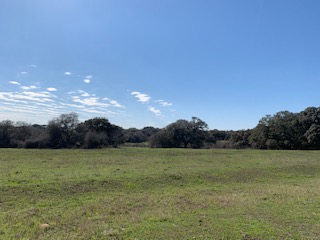Ah, the Texas countryside. As cliché as it sounds, I, as a Texan, love it. I enjoy the rolling prairie hills, the long country roads, the small towns, and the farms. I like eating country-fried, homemade cooking. I like walking around the corn maze. And I most of all love hanging out with the people there.
Part of it is nostalgia. Much of my family lives in the Texas countryside, so throughout my childhood, I’d often visit them. Oftentimes, this took place during annual family reunions at the dining hall at the local church or during holidays up at my great-grandparents’ dairy farm. My family in the country is very large, with many, many cousins, aunts, and uncles, with my great-grandparents at the head of the family. Or at least, they were before they passed away. For me, time on the farm filled me with such nostalgia.
I’m not alone in feeling nostalgia for the country life. Agrarianism is a time-honored tradition in many different parts of the world, including America. Some of America’s Founding Fathers, such as Thomas Jefferson and James Madison, believed in a republic of yeoman farmers. These farmers would grow their food on their land and be independent. Thus, they wouldn’t be beholden to the interests of any centralized government. This was the vision of freedom many of the early Americans believed in.
What is it about country living that causes people to romanticize it? It’s the simplistic nature of it. In the country, the complications that come with industrialization and urbanization do not exist. There are no long commutes to work. There are no crowded streets. And most of all, the isolation that seems inherent to large cities does not exist. Despite the independence of the ideal farmer, everyone in a small community like that knows each other. There’s no suspicion, and nobody feels the need to lock their house at night for fear of someone breaking in.
Agrarians hate urbanization because they find something inherently alienating about city life. Everyone in the city feels atomized from everyone else despite people being packed together like sardines. And all this, for the profit of a few rich businessmen. Everyone feels the dominance of the oligarchical structure of cities. The farmer, by contrast, has a stable place and a concrete sense of belonging. At the same time, the farmer has total independence and self-sufficiency – he grows his food and provides for his family directly through the sweat of his brow. He’s his own man, as it were.
Rural society is, in many ways, the ideal society. The fellowship that you can see in American small towns – the kinds of places where everyone knows everyone else – is second to none. As Thomas Jefferson once wrote, “Those who labor in the earth are the chosen people of God, if ever he had a chosen people, whose breasts he has made his peculiar deposit for substantial and genuine virtue.” Nowhere in the history of mankind has there been moral corruption in the mass of cultivators. Even today, the image of the yeoman farmer is a wholesome one. The secret to this is the tight-knit, high-trust communities such farmers inhabit.
This has been my experience with the country. Rural areas feel “homey” in a way that the suburbs never have, despite having lived in the suburbs my entire life. And maybe one day, that’s where you’ll find me.

I saw a lot of website but I believe this one contains something special in it in it
I appreciate, cause I found just what I was looking for. You’ve ended my four day long hunt! God Bless you man. Have a nice day. Bye
Hello! Would you mind if I share your blog with my facebook group?
There’s a lot of folks that I think would really enjoy your content.
Please let me know. Thank you
I don’t mind. Share away!
Howdy! I know this is kinda off topic but I was wondering which blog platform are you using for this site? I’m getting fed up of WordPress because I’ve had issues with hackers and I’m looking at alternatives for another platform. I would be awesome if you could point me in the direction of a good platform.
I’ve been using WordPress for my blog. It’s disturbing that you’ve been having problems with hackers, but I haven’t been having any such problems.
Hey There. I found your blog using msn. This is an extremely well written article.
I’ll make sure to bookmark it and come back to read more of your useful info.
Thanks for the post. I will definitely comeback.
We’re a group of volunteers and starting a new scheme in our community.
Your site provided us with valuable info to work
on. You have done a formidable job and our entire community will be grateful to you.
I have to thank you for the efforts you’ve put in penning this blog.
I really hope to check out the same high-grade content from you later
on as well. In fact, your creative writing abilities has
inspired me to get my own website now 😉
Stunning story there. What happened after? Take care!
Terrific work! That is the kind of information that are meant
to be shared across the internet. Shame on Google
for no longer positioning this post upper! Come on over
and discuss with my web site . Thanks =)